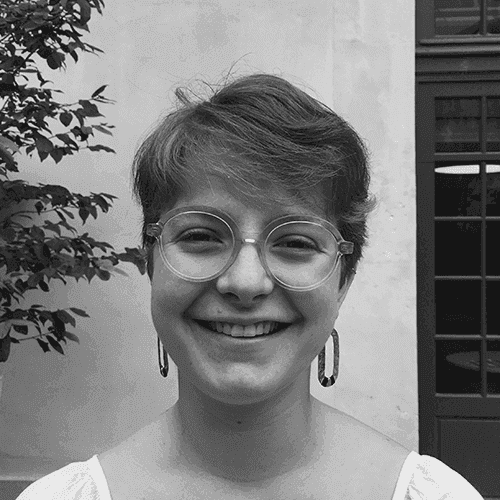Home>Ombline Damy

Research Interest(s): Comparative Literature, Literature and History, Testimonial Literature Child Studies, Trauma Studies, Memory Studies, 20th-21st century
Discipline(s): History
Research Group(s): Humanities. Lives, Materialities, Representations
Biography
I started my PhD in Comparative Literature at the Centre d'Histoire de Sciences Po under the supervision of Prof. Frédérique Leichter-Flack in September 2024.
From 2016 to 2020, I completed a Bachelor of Arts in Philosophy and Modern Languages (German) at the University of Oxford (St Hilda’s college) as well as an exchange year at the Universität Karl Eberhard in Tübingen, Germany.
Following my B.A., I went on to complete a Master of Studies in Comparative Literature (German and French) at the University of Oxford (Hertford College). During my M. St., I wrote my thesis under the supervision of Prof. Jane Hiddleston and Dr. Alexandra Lloyd on the representation of the body as an archive in 21st century autofictional narratives seeking to represent intergenerational trauma.
From September 2021 to August 2023, I taught French Literature and Language in a French secondary school with the collective “Le choix de l'école”.
From September 2023 to July 2024, I completed a Master 2 in Comparative Literature at the Université Sorbonne-Nouvelle under the supervision of Dr. Guido Furci. My thesis sought to interrogate the representation of child characters refusing to grow up in The Tin Drum (1959) by Günter Grass and The Book of Intimate Grammar by David Grossman, which I interpreted as a fictional response to the violence of 20th century history.
My research interests lie in what literature can say about history when it chooses to represent it. In particular, my PhD project seeks to understand the transformation that history undergoes when it is perceived by a child through the means of literary fiction. To quote Tolstoy in War and Peace, what is the nature of the "different” understanding often ascribed to children in literary texts? What are the purposes and the effects of the use of the child's perspective in literary fiction? Does this presumed "different understanding” construct a new conception of history and of its violence? Through my work, I aim to show that the use of the child's point of view in fictional works creates a distinct way of representing, memorialising and understanding the violent history of the twentieth century. My research project draws on a number of works published after 1945 in German, Hebrew, Italian and English.
Projects
My thesis project concerns the literary construction of a child's point of view to tell the story of violence in 20th century history. What are the specific features of the child's point of view when it is used to tell a violent story? To what ends and with what effects is the child's perspective used in fiction? Can we say that children are used in literature to articulate a ‘different’ understanding, to quote Tolstoy, of history? Can this ‘other’ understanding contribute to historiographical reflection on our conception of history? To answer these questions, my thesis draws on a corpus of works written after 1945, from German, French, English and Hebrew literature.
Thesis Supervision
Frédérique Leichter-Flack (dir.)
Thesis topic
"Comprendre autrement" : Le point de vue de l'enfant face aux violences de l'Histoire chez Calvino, Wolf, Lenz, Appelfeld, Lee et Morrison.
Teaching
- Elective course given in Nancy in German: ‘The Joys of Duty’: Narratives of childhood in Nazi Germany (‘Die Freuden der Pflicht’: Erzählungen der Kindheit in der Nazizeit)
- General and Comparative Literature seminar taught in French at the Sorbonne Nouvelle: ‘Comprendre autrement’: Ecrire du point de vue de l'enfant au 20ème siècle.
AWARDS
- 2021 - Hertford College Prize for Exceptional Academic Performance
- 2017 - Knox Memorial Prize
publications
- “Emil Nolde : l’artiste « dégénéré » qui admirait le régime nazi”, 29 avril 2025, https://theconversation.com/emil-nolde-lartiste-degenere-qui-admirait-le-regime-nazi-254648
- “Danse avec les fous”, 10 janvier 2025, https://www.lintermede.com/figures-du-fou-musee-du-louvre.php#1123
- “Save one life, save the world”, 12 juillet 2024, https://www.lintermede.com/save-one-life-save-the-world.php